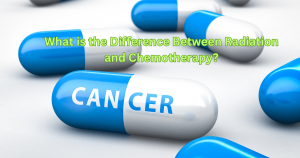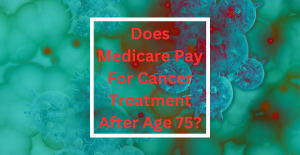Does Breast Cancer Cause Hair Loss Before Treatment most common cancers diagnosed in women worldwide. With early detection, the survival rate has improved significantly, but the journey is still challenging for many patients. One of the most common concerns among those diagnosed is the impact of breast cancer on appearance, particularly hair loss.
Hair loss is often associated with chemotherapy and other cancer treatments, but many wonder if it happens before any treatment begins. In this article, we will explore whether breast cancer itself causes hair loss before treatment, the factors that contribute to it, and how patients can manage this difficult aspect of their diagnosis.
Understanding Breast Cancer and Its Impact on the Body
Breast cancer is a disease in which cells in the breast tissue begin to grow uncontrollably. As the cancer progresses, it can spread to nearby tissues and other parts of the body. While breast cancer primarily affects the breast tissue, it can have far-reaching effects on a person’s overall health and appearance.
Hair Loss in Breast Cancer: What Happens?
Hair loss is often linked to chemotherapy treatments used to fight cancer. Chemotherapy drugs target rapidly dividing cells, which includes cancer cells but can also affect healthy cells like those in hair follicles. However, many people ask whether breast cancer itself, before treatment, can cause hair loss. Understanding the mechanisms behind hair loss in breast cancer is essential for addressing this concern.
Does Breast Cancer Cause Hair Loss Before Treatment?
While hair loss is predominantly associated with chemotherapy, it is important to clarify that breast cancer itself does not directly cause hair loss. However, some indirect factors related to the disease may contribute to hair thinning or shedding. Let’s take a closer look at the potential causes.
Stress and Anxiety from Diagnosis The emotional toll of being diagnosed with breast cancer can cause physical changes in the body. Stress is a known factor that can trigger a condition called telogen effluvium, a form of temporary hair shedding. The anxiety and emotional stress associated with receiving a cancer diagnosis can disrupt the normal hair growth cycle, leading to noticeable hair loss.
Hormonal Imbalances Breast cancer treatments often target hormone receptors, particularly estrogen and progesterone. Hormonal changes can affect the hair growth cycle, potentially leading to thinning or shedding even before any treatment is started. This hormonal fluctuation, especially in the early stages of diagnosis, could lead to temporary hair loss or changes in hair texture.
Nutritional Deficiencies Cancer patients often experience changes in appetite, nausea, and difficulty eating due to the disease’s symptoms or the body’s stress response. These changes can lead to nutritional deficiencies, which in turn can contribute to hair thinning. Lack of vital nutrients like iron, zinc, and vitamins can cause hair to become weaker and more prone to falling out.
The Connection Between Breast Cancer and Hair Loss During Treatment
Although breast cancer itself might not directly cause hair loss, the treatments that follow often do. Let’s look at the common treatments for breast cancer and their effects on hair.
Chemotherapy and Hair Loss
One of the most popular therapies for breast cancer is chemotherapy. It targets cancer cells that divide quickly. However, it also affects other fast-growing cells in the body, including those in hair follicles. This often results in hair loss on the scalp and sometimes throughout the body. Hair loss typically begins a few weeks after starting chemotherapy and can last until the treatment course is completed.
Other Treatments and Hair Loss
While chemotherapy is the most well-known treatment associated with hair loss, other treatments for breast cancer can also contribute to hair thinning or shedding:
Hormonal Therapy: Drugs that block or reduce estrogen levels (like tamoxifen or aromatase inhibitors) can lead to hair thinning in some patients.
Radiation Therapy: If the cancer has spread to areas like the head or neck, radiation can damage hair follicles in the treated area, leading to hair loss.
Targeted Therapy: Newer treatments like targeted therapy, which focuses on specific aspects of cancer cell function, can also cause hair loss, though it is usually less severe than chemotherapy-induced hair loss.
Coping with Hair Loss: Tips for Breast Cancer Patients
Hair loss is one of the most visible and emotionally challenging side effects of breast cancer treatment. However, there are ways to cope with this change in appearance.
Scalp Care During Hair Loss
Taking care of your scalp during hair loss can reduce irritation and help promote healthy hair growth once treatment ends. Gentle shampooing and conditioning, along with moisturizing the scalp, can help minimize dryness or discomfort.
Wigs, Scarves, and Headwear
Many patients opt for wigs, scarves, or hats to cover their hair loss. Finding a comfortable, breathable wig or scarf can be an empowering way to manage hair loss while maintaining a sense of normalcy.
Emotional Support and Self-Care
Hair loss can take an emotional toll on patients, leading to feelings of grief, anger, or sadness. Seeking emotional support from loved ones or professional counselors can be crucial for managing these emotions. Additionally, joining support groups or connecting with others going through similar experiences can help alleviate feelings of isolation.
Conclusion: Understanding and Managing Hair Loss with Breast Cancer
While breast cancer itself does not directly cause hair loss before treatment, the emotional, hormonal, and nutritional changes that come with a diagnosis may contribute to temporary hair thinning. Once treatment begins, especially chemotherapy, hair loss is a common side effect. Understanding the causes and being prepared with coping strategies can help patients navigate this challenging aspect of their cancer journey with resilience and confidence.




